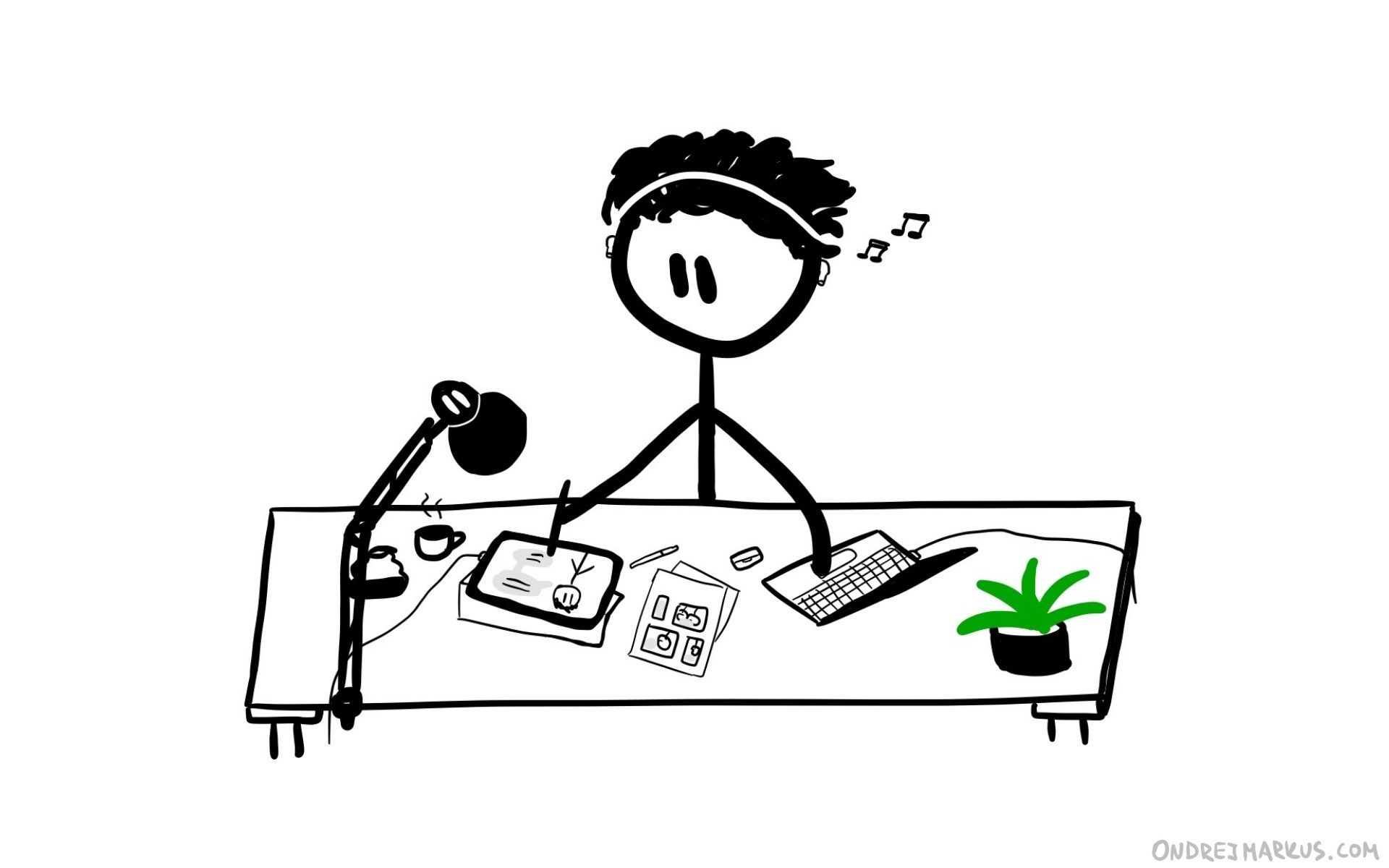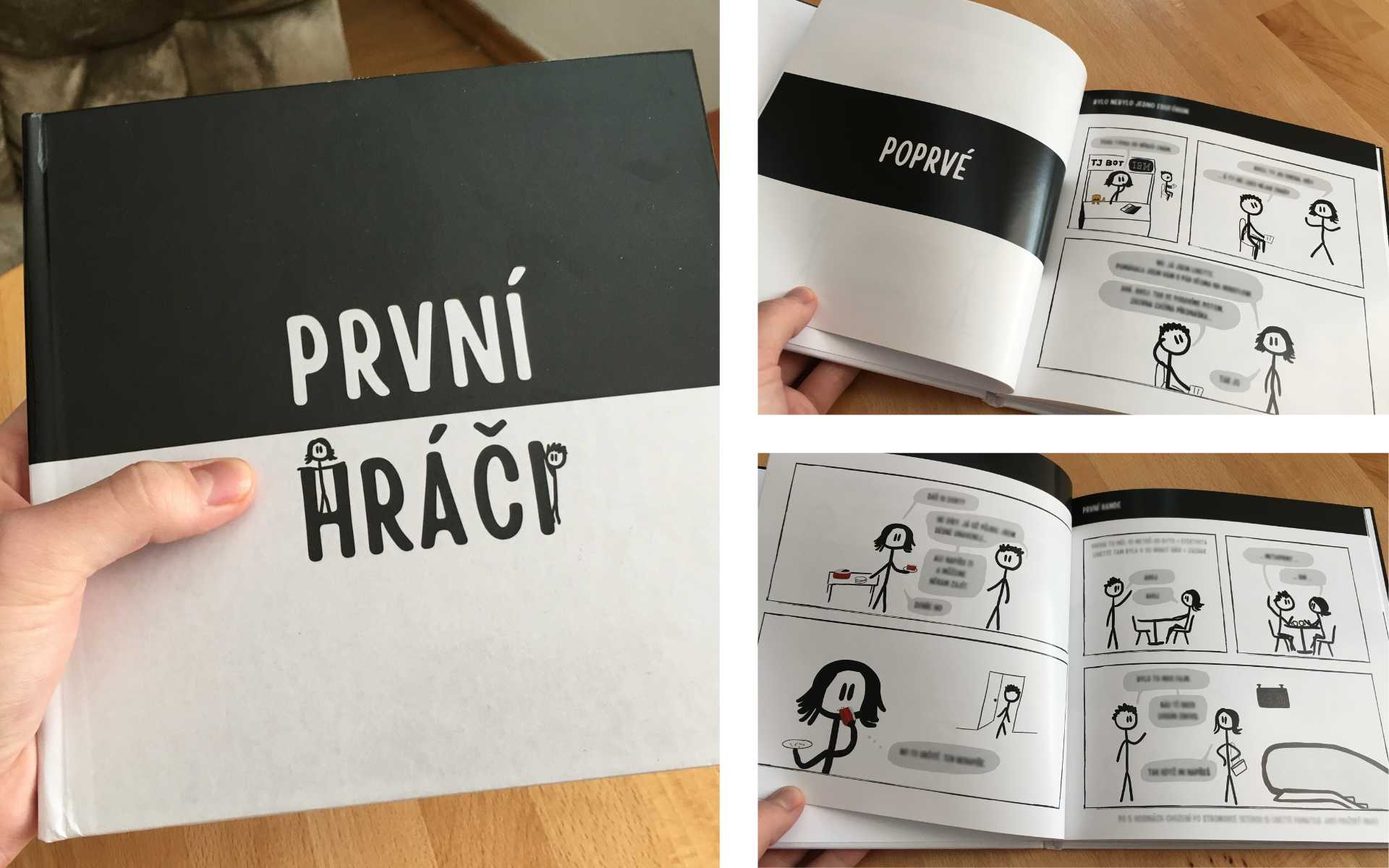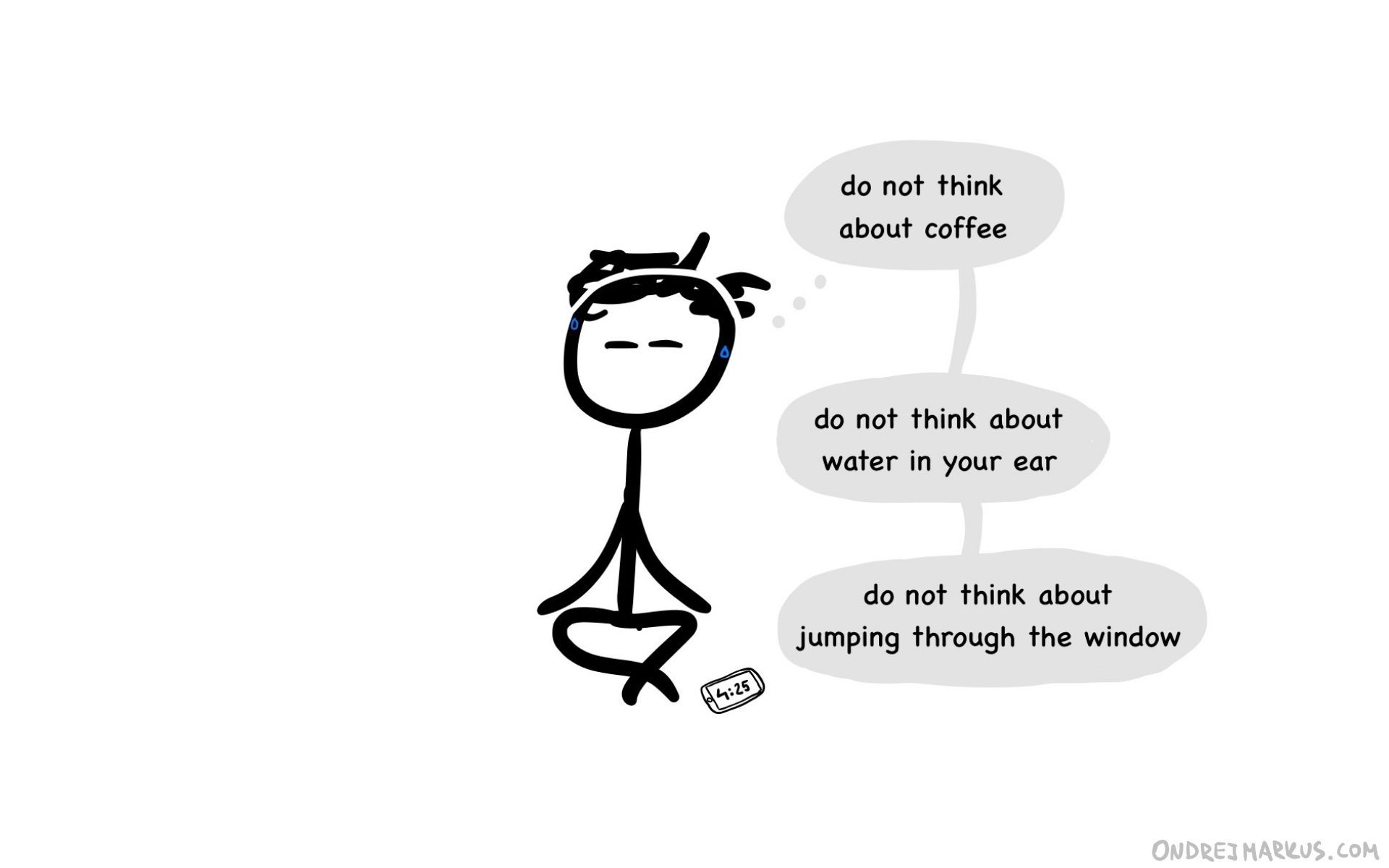

Hey there.
This is going to be totally different than what I’ve done before. Over the last year, I was focusing on writing articles, and when they were finished, I just sent them out in an email. But what I’m doing has changed (kind of), and so will these emails.
What I’m planning to do, is to send one email every month that summarizes what I’m up to:
That sort of stuff.
To be completely honest, I write this mostly for myself. Going through what I did and why is excellent therapy. Also, I feel more accountable to actually finish stuff when I tell you about it. So it’s free coaching too. Thanks for that. But don’t send me an invoice. I’ll pretend I was talking to someone else.
Alright, let’s begin.
I’ll go through them one by one. Feel free to skip to whatever interests you, of course.
I like to start the new year by properly looking back at the last one. Going through my journals helps me to understand myself a little better. (And/or wonder what the hell am I trying to do with my life). In either case, I can mentally move on.
Of course, writing this reflection piece took me about 2-3x more time than I’d hoped to be the case. Once I started, I couldn’t stop rewriting. The sunk cost of time spent on it pulled me in and didn’t let go until I finished a good enough version one week later. But it’s done, and I like it.
A comic book I made as a birthday gift for someone special to me. Have a peek:

A comic book I made
There is an improved 2.0 version of How to find meaningful work in my head. The problem is, it would take like 200+ hours to get it out. Nevertheless, I slowly started with the research: mostly self-determination theory.
Also, I’m considering the idea of remaking it into a different form. Maybe an interactive comic book? (Read: more pictures, less text, more fun.)
Future me approves of the idea but doesn’t like the amount of work needed. I’ll let you know which one wins.
I need to learn to code in Javascript to build these more interactive things online: like the interactive work guide, other game-like stuff, animations, or comics where you can choose from different paths, etc.
I’ve started a Udemy course on JavaScript, but that didn’t work for me at all. When I watch a video course, I tend to follow for a while, then get bored of just mirroring what the teacher is doing, and I quit.
But what did work for me is starting a project I think is fun and useful to do. And only whenever I encounter a specific problem requiring the knowledge of Javascript, I go on the internets to find the answer.
So I’ve made a question-generating app for conversations more interesting than small talk. Learning this way is much more fun, and therefore it’s easier even if it’s hard to do – if you know what I mean.
You can try the app online for free. It’s called Talk about this.
The theme for January was to simplify. I had quite a complex system for daily journaling and habit tracking and deep-work tracking, and other geeky stuff I won’t bother you with.
Anyhow, I’ve cut almost everything and focused on adding just two simple things on daily basis:
This is how I did with meditation (you can see my new un-sophisticated tracking system):
O = I did it / X = I didn’t

Meditation habit streak
(A paragraph of more-than-you-wanted-or-needed-to-know about why I’ve failed meditation:)
I absolutely failed with meditation. It dropped off in the middle of the month, and I’m not sure why. One guess is that I didn’t really set a specific moment of the day to do it and just hoped “there will be a good moment to do 5 minutes – I mean, cmon, it’s FIVE minutes”. But as it turns out, it wasn’t happening.
I thought the most certain thing would be to make it part of my morning routine somewhere between shower and coffee-making, so I did that. But there was a weird problem with that. When I meditate right after a shower, there is still some water in my hair and as I sit down and meditate, it starts dropping into my ear, and that’s irritating as fuck. So that didn’t work (and I now know why zen monks are hairless).

aaaaaaagh!
Also, in the morning, I’m impatient to make coffee (because it’s delicious), and putting meditation as an obstacle in front of that wasn’t probably a good idea anyway (all I was thinking during meditation was that I want to make coffee). And I couldn’t do it after making the coffee because then the coffee would get cold as I meditated. Ahh. #ZerothWorldProblems
On the other hand, when you start complaining about your inability to fit meditation in between cold Wim-Hoff-style showers and V60-coffee-brewing, it’s the moment you realize your life is going very fine, and that you don’t have any real problems.
The right word is grateful I think. Moving on.
This is a good one. Sit around me, children, and listen to the tale about memory and attention. (You have to read that in a funny old man voice, or I just end up sounding like a dick.)
I’m fascinated with how attention works.
Do you know the feeling when you are happy thinking about this super-fun project you enjoy thinking about, and then you look at your phone, check a group chat conversation, and they are talking about Bitcoin? And now all you can think about for the next 12 hours is how you have exactly zero digi-money, and half of the world is probably crypto-zillionaires by now? What fun.
Yeah. So that, but in a good way, and on purpose.
Spaced repetition is a way to deliberately think about and remember things you actually want in your brain. There is more than one way to do it, but people usually use an app like Anki (free, opensource).
It works like this: You create flashcards. On one side, there’s a question. On the other, there’s an answer. It’s often used to learn languages, and that’s how I’ve always looked at it.
But as it turns out, it’s a great tool to direct your attention to things you want to think about + remember them forever. You go to the app every day or so, and it gives you the daily portion of cards. You spend few minutes reviewing them. And that’s it.
The magic part is the algorithm. The app takes care of the spacing of what it shows you and when. You just add cards into it (that’s the time-consuming part). And eventually, you have hundreds and thousands of cards there: A collection of everything you want to remember (and you do because it works).
I won’t go into any more detail. If it sounds interesting to you, check this interactive comic strip that explains it better than I could.
Now back to my failings: I actually automated this habit quite successfully. I tracked the reviewing and the card-making separately. This is how I did (dots mean I haven’t started the habit yet):

Spaced repetition habit streak
The goal is to use it for learning Javascript and other things, plus putting prompts there that keep my attention on questions and topics I want to think about. Like a quote I want to bump into from time to time: “Who is not satisfied with little, is satisfied with nothing." Or a question I want to burn into my brain: “What transition should be between every line you write to keep the story interesting?" (it’s therefore or but, according to the makers of South Park).
The more I write, the more I realize that different forms (like articles, comics, movies, games,..) are just types of shells for what we want to say and change. Some are better than others in accomplishing certain things, but the goal remains the same: to change people’s minds.
Actually, I think it’s the only thing we can do – to express ourselves by making things, and hope it helps others become better. The world is, after all, the sum of people’s minds.
I didn’t understand the role of fiction in this until recently. I was focusing almost exclusively on reading and writing non-fiction because reading sci-fi or fantasy felt like entertainment and not much more. But now I see that stories are probably the most powerful tool to change people’s minds. They are engines of empathy. You can create a story from a blank page to say anything you want, about anything you want.
For example, Harry Potter probably influenced more minds than any other fiction or non-fiction work. Most people wouldn’t tell you they’ve learned about how to be brave from Harry Potter. But, I guess, a lot of people did without even realizing it. That’s the thing about fiction, and why it’s maybe undervalued. You learn and change without really knowing about it.
So sometimes it’s maybe better to not just tell people “be more courageous even if you’re scared” but to show them a story about someone being brave despite their fears.
I don’t know. I’m new to this. But I know I want to get better at using fiction as a tool of communication. So for February, I aim to write and finish 14 short fictional stories as a practice. (Yeah, it’s a lot, but they can be short. I’m going for quantity on purpose to avoid the perfection trap and finish things instead. I might regret that soon enough. It’s the 8th of February, and I’ve started 3 stories but haven’t finished any yet. Ups.)
I’m going wide and wild at the moment, and it’s a little scary. I just do what feels right. Although it doesn’t necessarily make sense on any other level, and that’s the hard part – trusting my intuition that what feels right is the right thing to do next.
For most of the last year, I focused on writing articles. Then I added more and more pictures into them, which later evolved into occasional comic-making. Now, I want to make interactive things with JavaScript, and use more fictional storytelling to convey what I want to say, instead of non-fiction do-this-to-get-that kind of articles.
It almost feels like once I think I understand something well enough, I move onto something else. Maybe I’m addicted to learning new things. Maybe, I like being a beginner with lots to learn over and over again, and I get bored once that isn’t the case. Or maybe I just haven’t hit the thing that will trigger my obsession to go really deep into mastering it. I don’t know.
But what I know is that I believe it’s better to keep exploring right now. Learning about one thing leads me to the next, and I follow. Yet, the tension and the fear of me being foolish and wasting time instead of mastering something feel very real.
Overall, what gives me comfort in uncertainty, is that, for now, I know the goal. Anything I do is done with the hope of changing people’s minds for the better.
Currently, I keep adding more tools and forms into my toolbox to have the ability to always pick the most effective combination to say what I want to say. Sometimes that might be a pure text essay, sometimes comics, sometimes an online game, and sometimes a hybrid of more than one of them. Maybe that isn’t the most effective way to pursue that goal, but it’s the way I like.
Thank you for reading. Hopefully, some of it made sense to you.